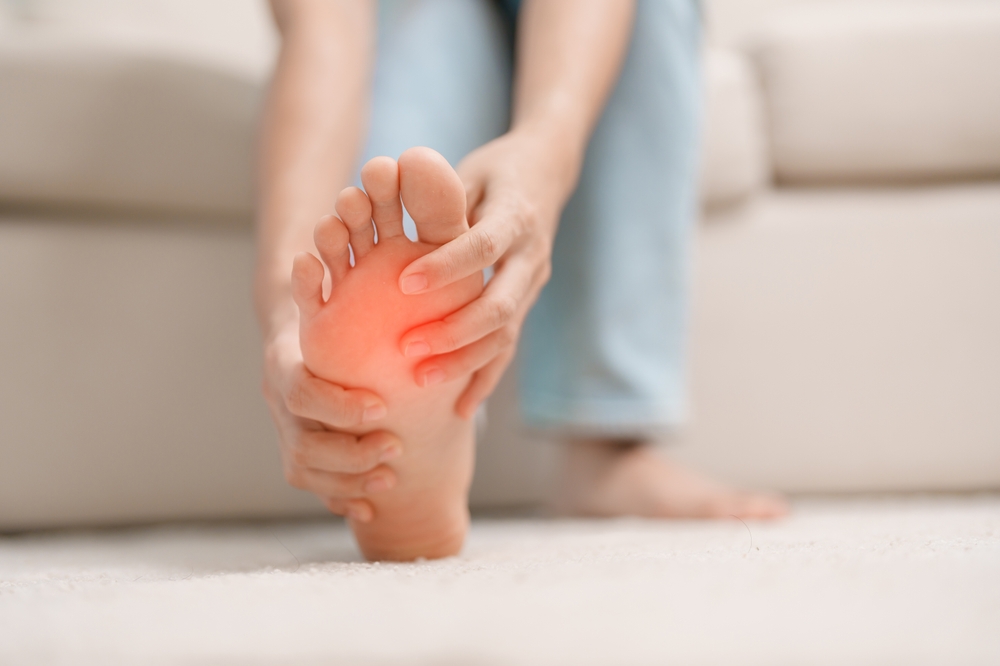
Tendonitis is a painful condition that occurs when a tendon, the thick fibrous cord that connects muscle to bone, becomes inflamed or irritated. This inflammation can develop in any tendon in the body, but it is most commonly seen in the shoulders, elbows, knees, and heels. Tendonitis is characterized by pain, swelling, and reduced mobility in the affected area.
Tendons play a crucial role in our body's movement and function, allowing us to perform a wide range of activities. When a tendon becomes inflamed, it can make even simple tasks like reaching, bending, or walking extremely painful and difficult. Understanding the causes, symptoms, and traditional treatments for tendonitis is essential in determining the best course of action for managing this condition.
Common Causes of Tendonitis
Tendonitis can be caused by a variety of factors, including:
Overuse or repetitive motions: Engaging in activities that require the same motion repeatedly, such as typing, playing sports, or performing manual labor, can put excessive strain on the tendons and lead to inflammation.
Sudden increase in activity: Suddenly increasing the intensity, duration, or frequency of physical activity can also cause tendonitis, as the tendons are not yet conditioned to handle the new level of stress.
Aging: As we get older, our tendons become less flexible and more prone to injury, making us more susceptible to developing tendonitis.
Underlying medical conditions: Certain health issues, such as rheumatoid arthritis, diabetes, or thyroid disorders, can increase the risk of tendonitis.
Improper form or technique: Performing exercises or activities with poor form or technique can put unnecessary strain on the tendons and contribute to the development of tendonitis.
Understanding the underlying cause of your tendonitis is crucial in determining the most effective treatment approach.
Symptoms of Tendonitis
The primary symptoms of tendonitis include:
Pain or discomfort in the affected area, which may worsen with movement or activity
Swelling and inflammation around the tendon
Reduced range of motion or mobility in the affected joint or limb
Tenderness to the touch
Stiffness or difficulty moving the affected area
These symptoms can vary in severity depending on the location and extent of the tendon inflammation. It's important to seek medical attention if you experience persistent or worsening symptoms, as untreated tendonitis can lead to further complications, such as the formation of calcium deposits or the development of a chronic condition.
How Chiropractic Care Can Help Treat Tendonitis
Chiropractic care offers a holistic approach to the treatment of tendonitis, focusing on addressing the root cause of the problem rather than just the symptoms. Chiropractors use a variety of techniques to help alleviate the pain and inflammation associated with tendonitis, while also promoting the body's natural healing process.
One of the primary ways chiropractic care can help treat tendonitis is by addressing any misalignments or restrictions in the spine or surrounding joints. When the spine is out of alignment, it can create an imbalance in the body's biomechanics, which can lead to increased strain and tension on the tendons. By gently adjusting the spine and other affected joints, chiropractors can help restore proper alignment and improve the body's overall function, reducing the stress on the tendons and promoting healing.
Chiropractors may also use soft tissue techniques, such as massage, to help reduce muscle tension and improve blood flow to the affected area. This can help reduce inflammation, alleviate pain, and speed up the healing process.
In addition to hands-on treatments, chiropractors may also provide guidance on lifestyle modifications, such as exercises, stretches, and ergonomic adjustments, to help prevent the recurrence of tendonitis. By addressing the underlying causes of the condition and empowering patients to take an active role in their recovery, chiropractic care can be an effective and long-lasting solution for managing tendonitis.
The Benefits of Chiropractic Care for Tendonitis
Incorporating chiropractic care into the treatment plan for tendonitis can provide a number of benefits, including:
Reduced Pain and Inflammation: Chiropractic adjustments and soft tissue techniques can help reduce the pain and inflammation associated with tendonitis, allowing for improved mobility and function.
Improved Range of Motion: By addressing any misalignments or restrictions in the spine and surrounding joints, chiropractic care can help improve the range of motion in the affected area, making it easier to perform daily activities.
Faster Healing: Chiropractic treatments can help stimulate the body's natural healing process, promoting the repair and regeneration of the damaged tendon.
Prevention of Recurrence: Chiropractors can provide guidance on exercises, stretches, and lifestyle modifications to help prevent the recurrence of tendonitis, reducing the risk of future flare-ups.
By incorporating chiropractic care into your treatment plan, you can experience a more effective and long-lasting solution for managing your tendonitis and improving your overall quality of life.
Book a Consultation with Campion Chiropractic Clinic Today
Tendonitis is a common and often debilitating condition that can significantly impact an individual's quality of life. While traditional treatments, such as rest, medication, and physical therapy, can be effective in managing the symptoms of tendonitis, chiropractic care offers a more comprehensive and holistic approach to addressing the underlying causes of the condition.
By using a variety of techniques to restore proper alignment, reduce muscle tension, and promote the body's natural healing process, chiropractors can help alleviate the pain and inflammation associated with tendonitis, improve range of motion, and prevent the recurrence of the condition. If you are struggling with tendonitis, consider incorporating chiropractic care into your treatment plan to experience the benefits of this effective and natural approach to managing this condition.
At Campion Chiropractic Clinic, we are dedicated to helping patients manage their tendonitis and other musculoskeletal conditions. We use a comprehensive approach to treatment, combining chiropractic adjustments, soft tissue therapy, and customized exercise and lifestyle recommendations to promote long-term healing and improved quality of life. Visit our office in College Station, Texas, or call (979) 464-4400 to book an appointment today.








